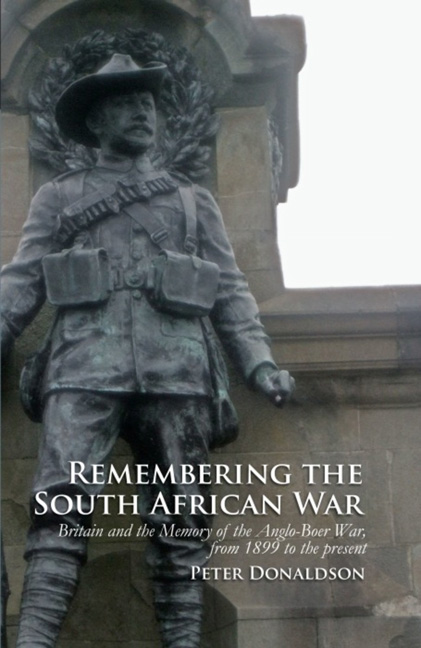 Remembering the South African War
Remembering the South African War Book contents
- Frontmatter
- Dedication
- Contents
- List of Illustrations
- Acknowledgements
- Introduction
- 1 Civic War Memorials: Public Pride and Private Grief
- 2 Pro Patria Mori: Remembering the Regiment
- 3 Vitai Lampada: Remembering the War in Schools
- 4 Alternative Affiliations: Remembering the War in Families, Workplaces and Places of Worship
- 5 Writing the Anglo-Boer War: Leo Amery, Frederick Maurice and the History of the South African War
- 6 Filming the War: Television, Kenneth Griffith and the Boer War
- Conclusion
- Bibliography
- Index
5 - Writing the Anglo-Boer War: Leo Amery, Frederick Maurice and the History of the South African War
- Frontmatter
- Dedication
- Contents
- List of Illustrations
- Acknowledgements
- Introduction
- 1 Civic War Memorials: Public Pride and Private Grief
- 2 Pro Patria Mori: Remembering the Regiment
- 3 Vitai Lampada: Remembering the War in Schools
- 4 Alternative Affiliations: Remembering the War in Families, Workplaces and Places of Worship
- 5 Writing the Anglo-Boer War: Leo Amery, Frederick Maurice and the History of the South African War
- 6 Filming the War: Television, Kenneth Griffith and the Boer War
- Conclusion
- Bibliography
- Index
Summary
IN the introduction to his magisterial 1979 overview of the Boer War, Thomas Pakenham noted that the history of the conflict for the past seventy years had been dominated by two contemporary works ; The Times History of the War in South Africa, edited by Leo Amery, and Sir Frederick Maurice's (official) History of the War in South Africa. Indeed, until Pakenham's study, little serious research into the conflict had been undertaken. Although there had been brief revivals of interest in the 1930s, with Ian Hamilton's Anti-Commando and J. F. C. Fuller's The Last of the Gentlemen's Wars, and in the late 1950s, with such populist works as Edgar Holt's The Boer War and Rayne Kruger's Goodbye Dolly Gray: The Story of the Boer War, these books had deviated little from the line established by Amery and Maurice. Pakenham was not alone in dismissing the glut of war-related memoirs and histories released in the first decade of the twentieth century as a ‘barrage’ from which the ‘Long Toms’ of Amery and Maurice stood apart. An anonymous ‘British Officer’, commissioned to survey ‘The Literature of the South African War’ for the American Historical Review in 1907, was equally contemptuous of ‘popular books, which profess to lay before their readers history, red-hot from its making like a baker's rolls’. ‘These works’, he argued:
no doubt answer their publishers’ purpose. They have a considerable although purely ephemeral sale, and in the case of a national struggle fan a healthy spirit of patriotism. But it must be confessed that they have no pretension to be included in the historian's library. Their text is for the most part compiled by the scissors and paste process from the columns of newspapers. Their illustrations are strangely dissimilar to the realities of modern war, and are often palpably the work of artists who have never been under fire, and whose acquaintance with battlefields is limited to a study of Napoleonic pictures and of melodrama as presented by the suburban stage.
- Type
- Chapter
- Information
- Remembering the South African WarBritain and the Memory of the Anglo-Boer War, from 1899 to the Present, pp. 132 - 151Publisher: Liverpool University PressPrint publication year: 2013


